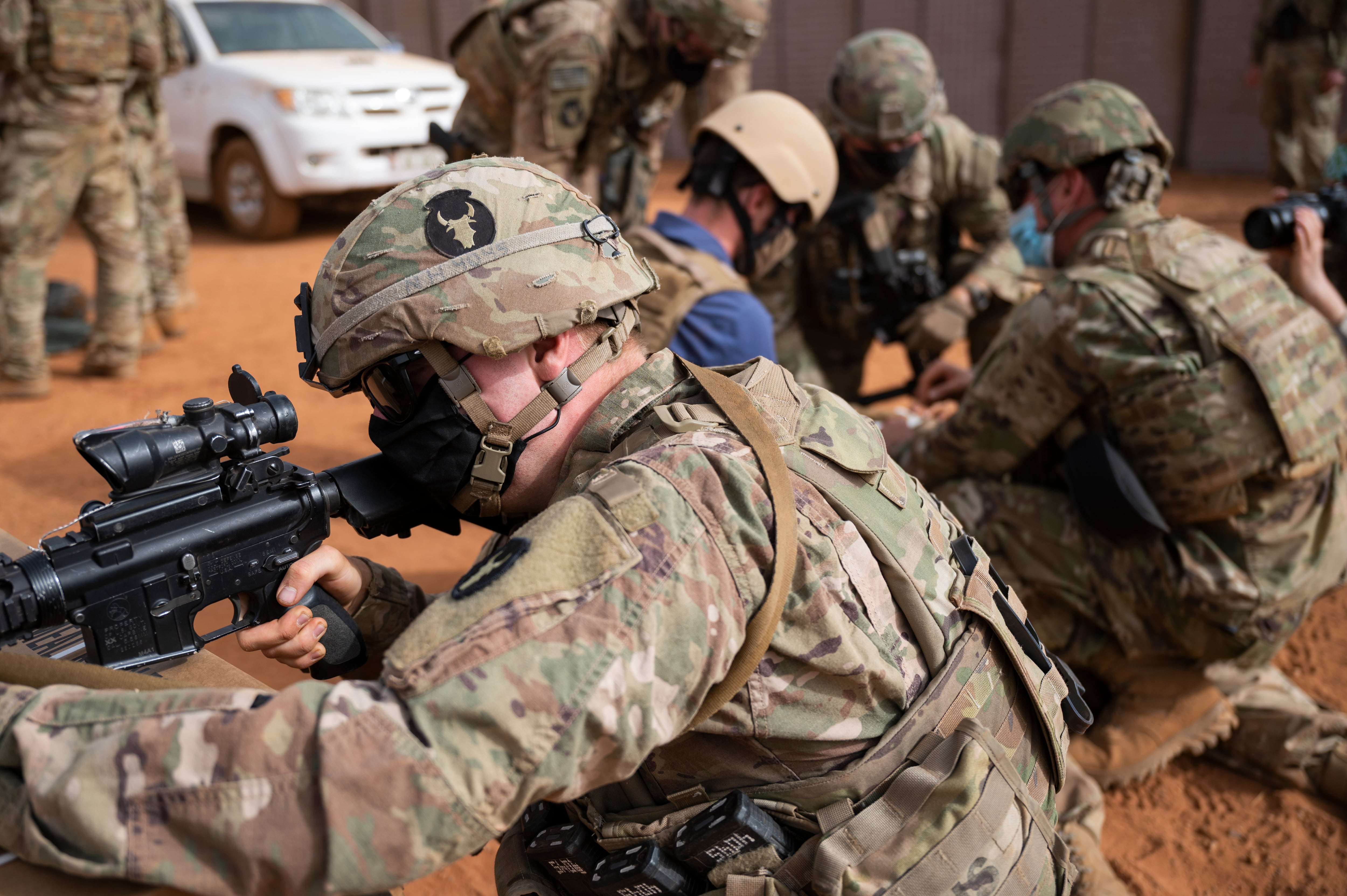In its latest civilian casualty assessment, U.S. Africa Command officials say they’ve received zero reports of civilian casualties stemming from U.S. military actions in the region.
The assessment, which ended with the calendar year on Dec. 31, noted no reports of civilian casualties, in addition to no open reports of casualties carried over from previous quarters.
There were 11 U.S. strikes in Somalia during 2021, a significant drop from prior years when the U.S. footprint in country was larger.
An official Defense Department instruction is also in the works following a Jan. 27 memorandum from Defense Secretary Lloyd. J. Austin III on the Civilian Harm Mitigation and Response Action Plan.
The plan seeks to improve the DoD’s approach to mitigating civilian casualties and improving the response to the ones that do happen. CHMRAP will establish a “civilian protection center of excellence,” the memo said, which will be responsible for expediting and institutionalizing the U.S. understanding and handling of civilian harm mitigation efforts.
The plan — which should be finalized sometime in the next month, according to Austin’s initial memorandum — will also develop a more standardized reporting and data management process and review current guidance and implementation efforts from the department.
This will include reviewing how the U.S. military handles condolence payments and public acknowledgment of the incident.
“Protecting innocent civilians remains a vital part of our operations and promotes a more secure and stable Africa,” Army Gen. Stephen Townsend, AFRICOM’s commander, said in a press release.
“We have a moral obligation to ensure our processes do everything possible to mitigate civilian harm.”
This latest assessment comes one month after U.S. forces, with cooperation from the government of Somalia, carried out a drone strike Feb. 22 against al-Shabaab near Duduble, 40 miles northwest of Mogadishu.
The strike was in response to the organization’s attack on partner forces, AFRICOM said at the time. The Trump administration pulled out almost all of the 700 U.S. troops who were in Somalia more than a year ago.
Many troops repositioned to Kenya and Djibouti. And although they do “commute to work” with Somali partners, Townsend said March 15 that he believes the process is not effective and risky.
“Violent extremist organizations like al-Shabab present long-term threats to the U.S. and regional interests,” the ensuing Feb. 23 AFRICOM press release read. “The Federal Government of Somalia and the U.S. remain committed to fighting al-Shabaab to prevent the deaths of innocent civilians.”
No civilian casualties were reported from the strike, although the official assessment for the first quarter of 2022 has yet to be released.
Rachel is a Marine Corps veteran and a master's candidate at New York University's Business & Economic Reporting program.





